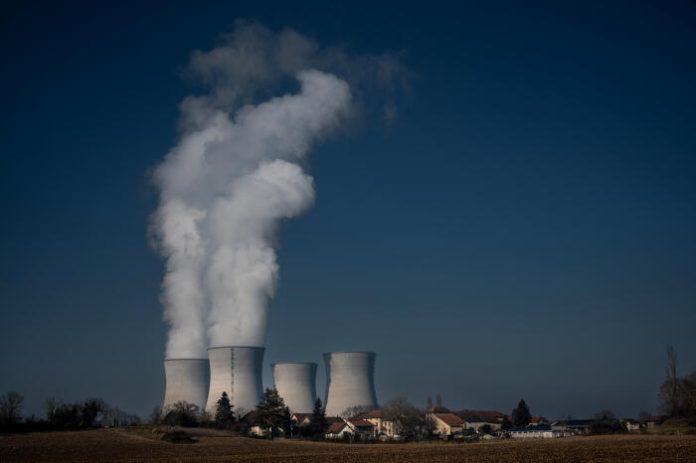Britain’s Newcleo and France‘s NAAREA (Nuclear Abundant Affordable Resourceful Energy for All) companies are set to form a strategic partnership to expedite the development of their fourth-generation nuclear technologies.
The two companies announced their joining forces on Tuesday to “support the industrial, technological, scientific and regulatory deployment” of fourth-generation nuclear reactors, known as advanced modular reactors (AMRs), according to a statement.
Such reactors are capable of utilising already used nuclear fuel from existing reactors.
NAAREA is designing a molten salt-fast neutron nuclear micro-generator capable of producing 40 MW of electricity and 80 MW of heat, while Newcleo is developing two concepts for lead-cooled mini-fast reactors (30 MW and 200 MW). Both projects are scheduled to complete in the same timeframe: 2026 for the non-nuclear prototype and 2030 for the first fueled prototype.
The alliance was announced by EU Energy Commissioner Kadri Simson back in early November, with activity planned to start in February.
The companies signed the Memorandum of Understanding, focusing on the fuel cycle, the financing of its infrastructure and industrial development. According to David Briggs, deputy managing director of NAAREA, the partnership could even provide a joint research base at European scale in collaboration with the Sustainable Nuclear Energy Technology Platform (SNETP), a centre of exchange and influence on nuclear energy in Europe.
Newcleo and NAAREA hope to find sites for their prototype in 2024 and secure access to fissile material, for which a meeting will be held once a month, led by a steering committee consisting of Briggs and Ludovic Vandendriesch, Newcleo’s managing director for France.
The timing responds both to the environmental emergency and to the need for European 4th generation projects to emerge, to have solutions to the Chinese and American competition.
Both companies are winners of the Innovative Nuclear Reactors competition to participate in projects under France’s 2030 investment plan, which allocated €1 billion to the nuclear industry.
